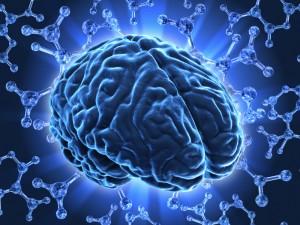 In the midst of an opioid epidemic, we find ourselves searching for alternatives to our dependence on painkillers for chronic pain. One unexpected option: The placebo response.
In the midst of an opioid epidemic, we find ourselves searching for alternatives to our dependence on painkillers for chronic pain. One unexpected option: The placebo response.
To most of us, a placebo is simply a harmless fake used as a control in research trials. Half the study population gets the medication, the rest a sugar pill disguised as the real thing. That’s so researchers can determine whether the new med is more effective than simple expectation.
As a result, for most Americans, placebo is a synonym for sham. But looked at more closely, it can teach us something very important about the influence that expectation and belief have on our physiology– suggesting potential usefulness in clinical practice.
For instance, described here: “The placebo effect: Knowingly taking sham pills may reduce chronic pain” and here: “Placebo effects in medicine“.
I was reminded of studies from past decades that found heroin users experienced some relief from withdrawal symptoms by injecting a solution they believed to be narcotic, but wasn’t. This was attributed to the power of ritual around IV drug use. Same for methadone clients who reported feeling better while standing in line waiting for the cherry-flavored liquid. Just as anticipation of withdrawal made the symptoms seem worse, anticipation of relief caused them to diminish.
This isn’t to suggest withdrawal is “all in the mind”– it isn’t. But psychological forces do seem to have an effect.
As the links indicate, Kaptchuk’s research goes well beyond that, to suggest that a patient doesn’t have to be ‘fooled’ for placebo to work. The response can be triggered by trappings alone.
For example:
Authority, of the sort a physician assumes when s/he recommends a medication to a patient. Or even someone wearing a white coat and stethoscope.
Ritual, such as a setting that has become associated with relief from symptoms. This has long been observed with hallucinogens. One client told me about selling Ecstasy and LSD at Burning Man– when he ran out of product, he switched to fakes. Customers seemed not to notice. Many praised the quality of his drugs, swearing they’d stayed high on them for days.
I wondered about the calming effects that 12 step meetings have on some members. What if it’s the structure and ritual of the meeting environment? The familiar reading of the Preamble, handing out “chips” for recovery time, closing with the Lord’s Prayer?
Perhaps clinicians should reconsider the role of ritual in psychotherapy. What if it’s like acupuncture, which has no basis in science, and probably should not work– except many patients say it helps. What is it that’s getting that result?
There’s already research indicating that outcomes in psychotherapy are far less about the methods we employ, and far more about the therapeutic bond. That would help explain why such different approaches produce comparable outcomes.
Who knows? Might be that clinicians can teach patients to activate their own body’s placebo response, in order to feel better. We can all use help with that.








